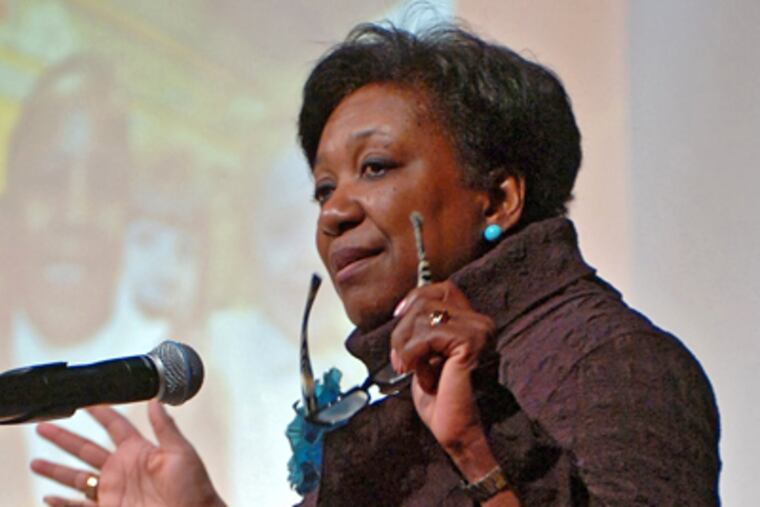School changes won't be forced, Ackerman says
The process of transforming failing schools won't be handled in Philadelphia as it has been in other cities, schools chief Arlene Ackerman promised yesterday.

The process of transforming failing schools won't be handled in Philadelphia as it has been in other cities, schools chief Arlene Ackerman promised yesterday.
Changes will not be forced on neighborhood schools, she said, and parents and students will "feel like they have a say in deciding what transformation looks like for their school communities."
Ackerman made her remarks at a news conference after the first meeting of a group that will study which schools will close and who should run them.
As part of her Imagine 2014 plan, Ackerman wants to close up to 35 chronically underperforming schools in the next five years. They would be reopened as charters or schools run by outside management firms or individuals.
The first group of schools - officials estimate 10 - is to open in September 2010, so the board must work quickly.
Fifty educators, teachers, parents, and community members make up the Renaissance Schools Advisory Board, which is led by Mayor Nutter's education secretary, Lori Shorr; Patricia Coulter, chief executive of the Urban League of Philadelphia; and Robert Peterkin, who heads the Urban Superintendents Program at the Harvard Graduate School of Education.
Leroy Nunery, a consultant and former Edisonlearning executive, has been named to facilitate the group's work.
In the next week, the committee will get data about 25 failing schools from around the city with no school names attached, so members can be totally objective, district officials said.
One subgroup, chaired by Shorr, will be charged with devising a system to pick the schools to close. Another will be in charge of community engagement, and a third will be in charge of provider recruitment and selection.
No schools have been chosen yet and no providers have been contacted about running schools, Ackerman said.
Ackerman has focused much attention on the district's lowest-performing schools. Ninety-five have been set aside and given additional resources; $30 million was spent on the so-called empowerment schools last year.High-achieving and magnet schools should not take that to mean they'll be out in the cold, the superintendent said.
"We're not going to rob Peter to pay Paul," she said. "We're not taking money from any of our other schools."
The group is expected to deliver recommendations by October. Its work will be reviewed by education experts from around the country.